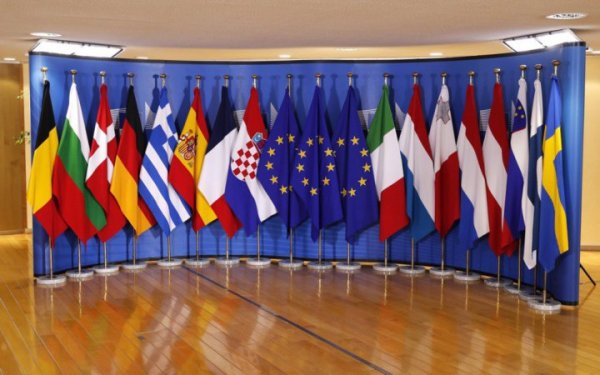Politicians will talk in Brussels about what military capabilities they will need in the coming years, sources of funding and how EU members can cooperate more through common projects.

European Union leaders will discuss today how to strengthen the continent's defense against Russia and how to handle US President Donald Trump after his decision to impose tariffs on goods from Canada, Mexico and China.
Reuters writes about this.
< In the royal palace, which has become a conference center In Brussels, the leaders of the 27 EU countries will also have lunch with NATO Secretary General Mark Rutte and dinner with British Prime Minister Keir Starmer.
Antonio Costa, president of the EU's European Council of Leaders, called the one-day meeting a “retreat” to discuss defence policy rather than a formal summit aimed at open discussions without any formal statements or decisions.
The first session is focused on geopolitics and relations with the United States, meaning policymakers will discuss Trump's sweeping move on tariffs that EU officials fear they could soon face similar measures.
Trump signed three executive orders imposing additional tariffs on goods from Canada, Mexico and China
Trump, who began his second term as president on January 20, will also be a major factor in defense talks as he has demanded that European countries spend much more on their own defense and rely less on the United States through the NATO security alliance.
Trump's call for EU member Denmark to cede Greenland to the United States – and his refusal to rule out military action or economic pressure to force Copenhagen – has also added strain to transatlantic ties.
EU leaders are expected to discuss what military capabilities they will need in the coming years, how they can be financed and how they can cooperate more through common projects. “Europe must take greater responsibility for its own defence. It must become a more resilient, more effective, autonomous and credible player in security and defence matters,” the letter from the Fund to the leaders said.
SEARCH FOR DEFENCE FUND
The debate over funding will be particularly tough, diplomats say, because many European countries have little scope for significant increases. Some countries, such as the Baltics and France, favor EU borrowing for defense spending. But Germany and the Netherlands are adamantly opposed. One compromise could be to borrow to finance loans rather than grants for defense projects.
European countries have increased defense spending in recent years, particularly since Russia’s 2022 invasion of Ukraine. At the same time, many EU leaders have said they will have to spend even more. Trump has said European NATO members should spend 5 percent of GDP on defense, a figure no other member, including the United States, currently achieves.
According to EU estimates, EU countries spent an average of 1.9% of GDP on defence last year – around €326 billion. That’s 30% more than in 2021. At the same time, it also masks major differences between the bloc’s countries.
According to NATO estimates, Poland and the Baltic states spend the most on defence in terms of GDP figures, with Warsaw leading the way with over 4.1%. But some of the EU’s largest economies, such as Italy and Spain, spend much less – around 1.5% and 1.3%, respectively.
- Yesterday, NATO Secretary General Rutte announced a significant increase in defense spending by the Alliance. He supported Donald Trump's position on the need to increase military investment and called on Germany to increase its defense budget. >
- Earlier this year, The Telegraph reported that most of NATO’s 31 members would spend at least 2% of their GDP on defence this year, up from just three in 2014.
- On January 23, Trump again asked all NATO members to increase their defence spending to 5% of their GDP. Before his inauguration, Trump also said that the alliance should spend 5% of GDP on defence, more than doubling his demands on European allies from the current target. Adequate defence funding is a key condition for Trump to keep the US in NATO. The US spends around 3.4% of GDP on defence.
- Poland has set a record defence spending rate in the country’s history: 4.7% of GDP, significantly more than the 2% stipulated by NATO treaties.
- It was also reported that European countries are planning to create a defense fund of 500 billion euros. Both EU member states and countries outside the union want to be involved in the initiative. Currently, European NATO members are discussing increasing defense spending to 3% of GDP.
- In Ukraine, 26.3% of the country's GDP or UAH 2.23 trillion will be spent on defense in 2025.
